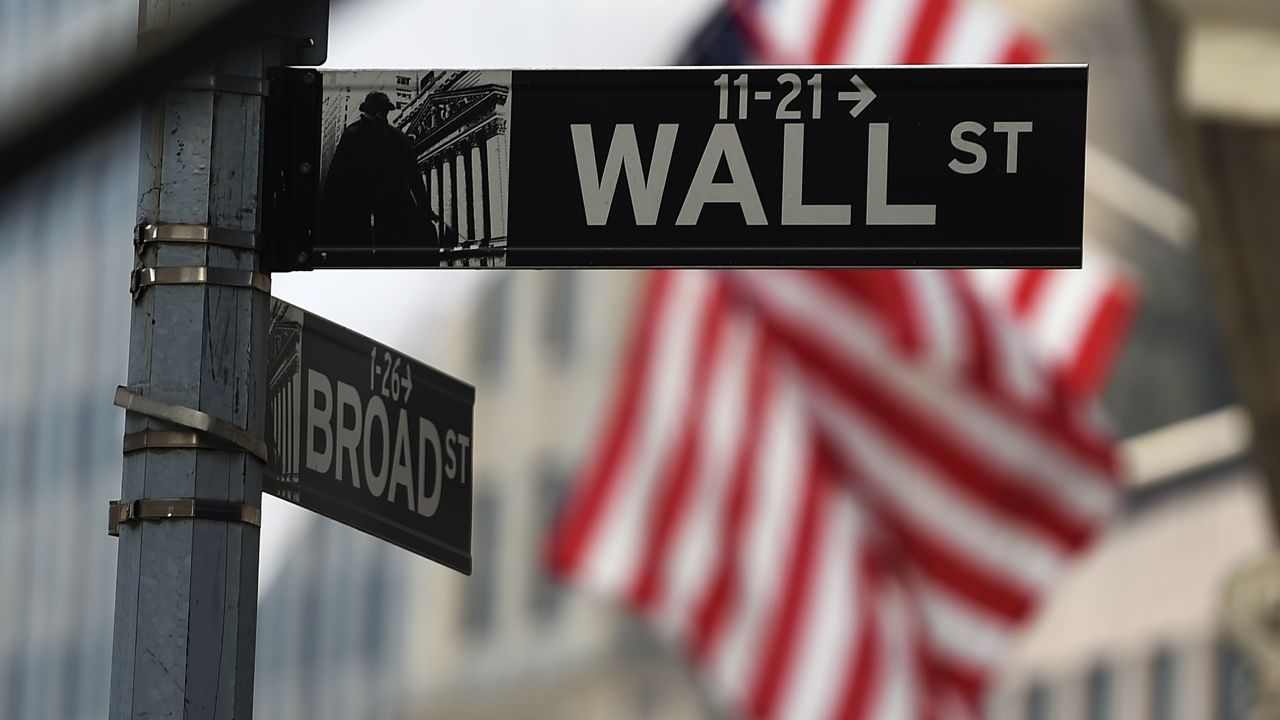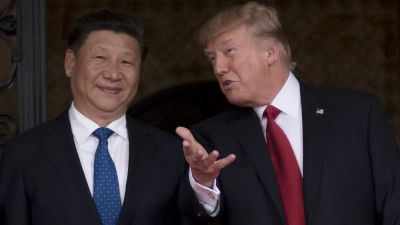
The “carried-interest tax loophole” allows managers of certain private-equity funds to treat the bulk of their earnings as long-term capital gains. The current tax rate on capital gains for higher-income earners is 20 percent; the ordinary tax rate for the same class is 39.6 percent. (Photo by Jewel Samad/AFP/Getty Images)
This post originally appeared at Capital & Main.
Leo Hindery Jr. remembers the call he got the night before he was to testify before Congress, in September of 2007, to close a tax loophole enjoyed by private-equity investors. It was from Stephen Schwarzman, co-founder of the Blackstone Group, the largest private-equity management firm in the US.
“His opening sentence was, ‘You’re a traitor,’” remembers Hindery, himself the founder of a private-equity firm, and hence a member of the brotherhood of the loophole’s beneficiaries. Hindery reminded Schwarzman that he hadn’t yet testified; it might be too soon to judge. Schwarzman wasn’t having it.
“If you change my income-tax rate, I just won’t do this work anymore,” Hindery remembers him saying.
“Then you’ll be worth only $4 billion, instead of $6 billion?” Hindery replied. “I think that’s okay.”
It’s so unfair to the middle class … You adopt a progressive tax system, and then people get to abuse it.
— Leo Hindery Jr.
Actually, Schwarzman’s net worth, according to Forbes magazine, is currently closer to $10 billion, down from nearly $13 billion in 2015, when he was the 100th richest man in the world (his ranking declined this year to 113th). At least part of his success owes to a tricky part of the US income-tax code that Hindery has now testified against repeatedly, and before more than one legislative body. Called the “carried-interest tax loophole,” it allows managers of certain funds to treat, for tax purposes, the bulk of their earnings not as remuneration for services rendered, but as long-term capital gains. The current tax rate on capital gains for earners in the higher-income tax brackets is 20 percent. The ordinary tax rate for the same ultra-wealthy class is 39.6 percent.
“It’s so unfair to the middle class,” Hindery tells Capital & Main. “You adopt a progressive tax system, and then people get to abuse it.” The tax break benefits only about 2,000 people in the country, “mostly men, concentrated in a handful of states,” he says. Hindery estimates the lower tax rate saves the combined lot of them $10 billion to $12 billion every year. With that kind of money, he says, “you could fix all the municipal water problems in this entire country. It’s just a fraud.”
Other estimates of the potential revenue gain from closing the loophole are lower; some run even higher. The Congressional Budget Office estimates that taxing carried interest at ordinary rates would net $18 billion over 10 years. Law professor Victor Fleischer, now at the University of San Diego, who in 2006 published Two and Twenty, an influential paper on the carried-interest tax, thinks even that might be low by a factor of 8. Fleischer continually revises his estimate of how much a standard tax on carried interest would generate over a decade, based on IRS income statistics. He wrote in an email that his current figure stands at $150 million.
Carried interest, or “carry,” gets its name from the days when medieval ship captains demanded a 20-percent profit on the goods they carried from Europe to Asia, to compensate them for risking life and bounty braving pirate-infested and storm-tossed seas. Though the metaphor has stuck, the risk to the modern fund manager isn’t nearly so extreme; in fact, it’s hardly a risk at all. Private-equity firms make only miniscule contributions to their investment schemes; the rest they raise from “limited partners,” such as retirement funds and other fiduciaries. Those partners pay an annual management fee of 2 percent on the capital investment, and a 20-percent “carry” on any profits the investment brings in.
When the California Public Employees’ Retirement System (CalPERS), for instance, commits $500 million to a Blackstone Group-managed fund (as it has), Blackstone earns a $10-million annual fee, which is generally taxed at the regular rate. If that investment doubles in value, $100 million goes to the firm, and the remaining $400 million to CalPERS. The tax code treats that $100 million as a capital gain, subject to a 20-percent tax rate.
Hindery, founder of the private-equity firm InterMedia, has long been an advocate of labor and economic policies that benefit the middle class. But he’s not the only one in his elite set arguing to alter the tax code to his own detriment. He belongs to a group called “Patriotic Millionaires,” led by Morris Pearl, until 2014 the managing director of the investment-management firm BlackRock. Berkshire Hathaway’s Warren Buffett actually complained that his 17.4-percent tax rate was too low. “My friends and I have been coddled long enough by a billionaire-friendly Congress,” he wrote. “It’s time for our government to get real about shared sacrifice.” It was the carried-interest problem President Obama was referring to in the 2012 presidential campaign when he noted that the billionaire “Buffett pays a lower tax rate than his secretary.”
Schwarzman, who personally collected $88.3 million in carried interest last year, did not respond to Capital & Main’s request for comment, but a lobbyist connected with him, Wayne Berman, has argued that a carried-interest tax hike would punish innovators and drag down the entire economy. Schwarzman himself likened the push to extract more tax revenue from billionaires to Hitler’s 1939 invasion of Poland. He has since apologized.
Since 2007, private-equity and investment firms have sunk anywhere from $8 million to $16 million into their lobbying efforts each year.
Last summer, Sen. Tammy Baldwin (D-WI) and Rep. Sander Levin (D-MI), introduced identical bills in their respective bodies, both called the “Carried-Interest Fairness Act of 2015.” Their combined efforts, both currently held up in committee, mark the second attempt Congress has made to address the issue since Fleischer’s research brought the issue to the Senate Finance Committee’s attention. (Fleischer’s paper, coincidentally, made the news around the same time Schwarzman allegedly threw himself a $5 million birthday party with Rod Stewart as headline entertainment.)
Alec MacGillis has written in detail for The New Yorker about the saga of the legislation Levin first proposed, and its Senate counterpart by then-Sen. Max Baucus (D-MT) and Sen. Charles Grassley (R-IA). The bills have either been held up in committee, stalled in the Republican-dominated Senate or run into cloaked resistance from Senate Democrats, including New York Sen. Charles Schumer. Hindery traces it all back to one simple fact: “Campaign finance abuse,” from which the Democratic Party “is not immune.” Since 2007, private-equity and investment firms have sunk anywhere from $8 million to $16 million into their lobbying efforts each year.
“You get what you pay for in this country,” he says.
Nevertheless, there might be more hope for Levin and Baldwin’s efforts this year, in part because of increasing voter awareness of the mechanisms of inequality. Vermont Sen. Bernie Sanders in his presidential campaign vowed to pay for a jobs program for disadvantaged youth by closing the carried-interest loophole; Sen. Elizabeth Warren (D-MA) has included the billionaire tax break in her overall message about Wall-Street reform.
Hillary Clinton, who did not sign on as a co-sponsor to the Baucus-Grassley bill as a senator in 2007, now says that she would consider using executive authority over the Treasury Department to impose the full tax rate on fund managers’ earnings. Even Donald Trump has come out against the carried-interest loophole. (But he also wants to lower taxes so dramatically that the issue would be moot.)
If a national effort fails, Hindery tells Capital & Main, Patriotic Millionaires will take the matter to the states. The New York legislature already has a bill in the works to impose a surtax on people who benefit from the federal loophole. In California, where capital gains are already taxed as ordinary income, legislators may be considering a similar proposal. “No one disputes that thoughtful investment is good for the country,” Hindery says. “But if you don’t shut this door, I don’t know how you get the middle class in this country to ever trust Washington again.”




